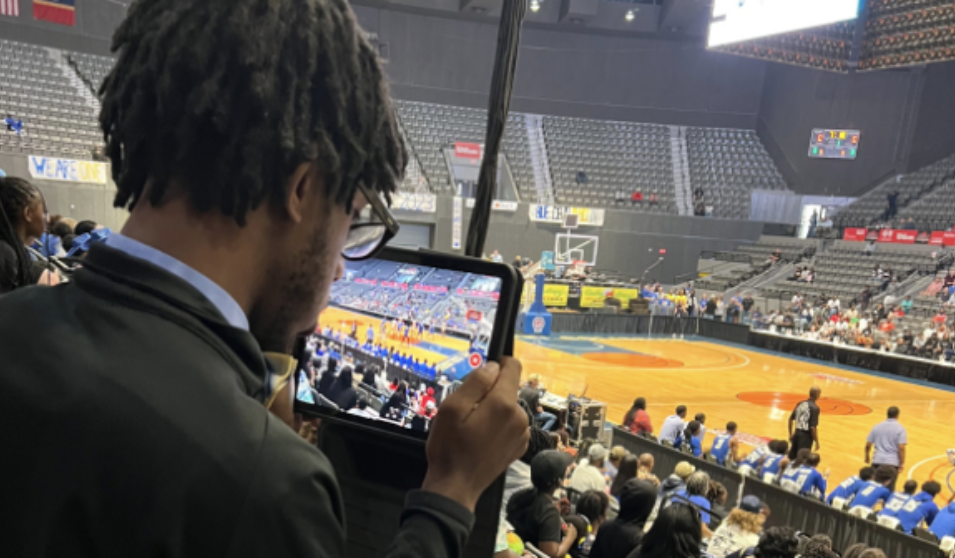RSC's Executive Director, Taylor McCabe-Juhnke, recently shared this op-ed on combating student loneliness. The following article was originally published by The74 . You can read the original article here. You can also learn more about the GRAD Partnership on our website.
Like many high schoolers, 10th-grader Jamyreon Taylor loved basketball. But due to a physical limitation, he was unable to play on his high school team. At most schools, that could have been the end of Jamyreon’s story — and his basketball dreams.
But Southeast Lauderdale High School, near Meridian, Mississippi, is not like most schools. Its teachers and staff have made connection and belonging a top priority, with the goal of matching every student with at least one extracurricular activity. Their reasoning? When students are involved in something outside of their core classes, they are more likely to show up at school, build relationships with their peers and staff and succeed academically.
So the school’s student success team — staffers charged with knowing and supporting every student — got together to find a tailored solution for Jamyreon.
He is now the high school’s basketball manager. Jamyreon travels with the team, dresses up on game days, films the games and reviews footage. His teachers have seen improvement in his schoolwork and participation in class. As for the basketball coach and team, they find Jamyreon essential — he’s not only the manager, but very much part of the team.
Southeast Lauderdalel’s approach to strengthening connections can be a model for other schools, particularly amid heightened concerns about student mental health, absenteeism and disengagement.
The U.S. surgeon general recently issued an advisory calling loneliness an epidemic for the population at large, while noting that the rate among young adults has increased every year between 1976 and 2019. By all accounts, the pandemic’s disruptions only accelerated that trend.
Rural communities, like the one served by Southeast Lauderdale High School, face particular challenges. For example, rural residents generally experience more obstacles in accessing mental health care, a challenge known as The 4 A’s of availability, accessibility, affordability and acceptability. A recent poll from the National Rural Education Association data estimates there are just under 400 students for every school counselor in the highest-priority states.
Rural schools cannot solve the youth mental health and loneliness epidemic alone, but they do have a critical role to play in connecting students to those around them. Research from the federal Centers for Disease Control and Prevention shows that when students feel that adults and peers in school know and care about them, they are less likely to report poor mental health and persistent feelings of sadness and hopelessness.
Several factors have been key to Southeast Lauderdale’s success in strengthening student connection:
First, the school leans on the research-driven Student Success Systems framework, which encourages schools to designate a group of adults focused on monitoring and improving engagement and connection. Dubbed the student success team, these teachers, coaches, counselors and administrators meet regularly to develop strategies for getting more students involved in activities. As one of 20 members of the Rural Schools Collaborative’s Rural Student Success Pilot Cohort, Southeast Lauderdale receives coaching and technical assistance for its student success team from the University of West Alabama.
Second, the team has adopted an expansive definition of student data beyond grades and test scores. Southeast Lauderdale also measures student connection to school — in this case, involvement in extracurricular activities.
Its method is one that any school could replicate: a shared Google spreadsheet. The team listed all the students on the spreadsheet and sent it around to school staff so they could input information on which students were connected to which activities — football, cheer, career and technical education clubs and more. The team found that 40% of students were not involved in any activities beyond required courses.
Focusing on those unconnected students, the team sought to find a place for each of them, matching activities with their interests. For example, a student survey showed that several were interested in a color guard team. A teacher stepped forward to coach the team, and it now includes 10 students, all of whom had not been not connected to any activity before.
Since last year, the percentage of uninvolved students at Southeast Lauderdale has fallen from 40% to just 12%. And after one-on-one meetings with those who remain unconnected, each student has agreed to try something new in the fall.
A healthy American future must include a thriving rural landscape, and schools will be at the forefront of this effort. To address the growing epidemic of isolation and loneliness, schools in rural areas should prioritize relationships and connectedness. Southeast Lauderdale High School in Mississippi is showing how.
Disclosure: The Bill & Melinda Gates Foundation provides financial support to the Rural Schools Collaborative and The 74.

